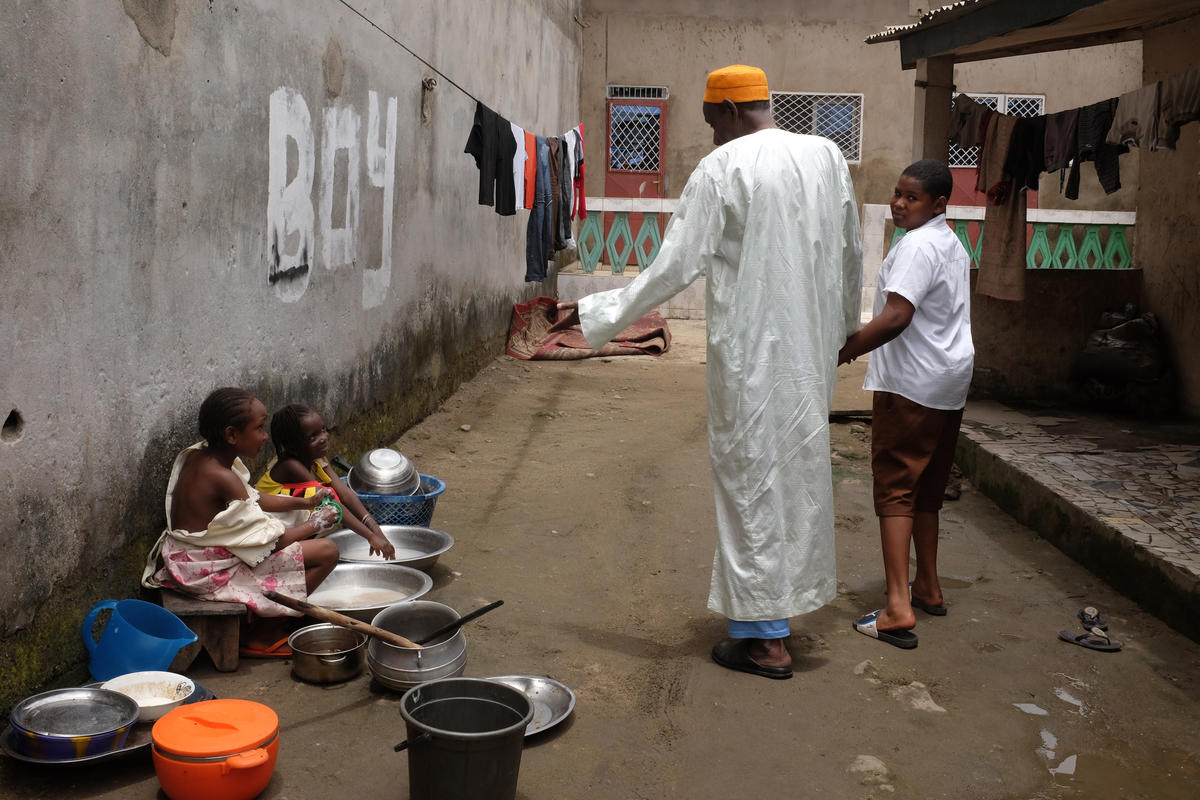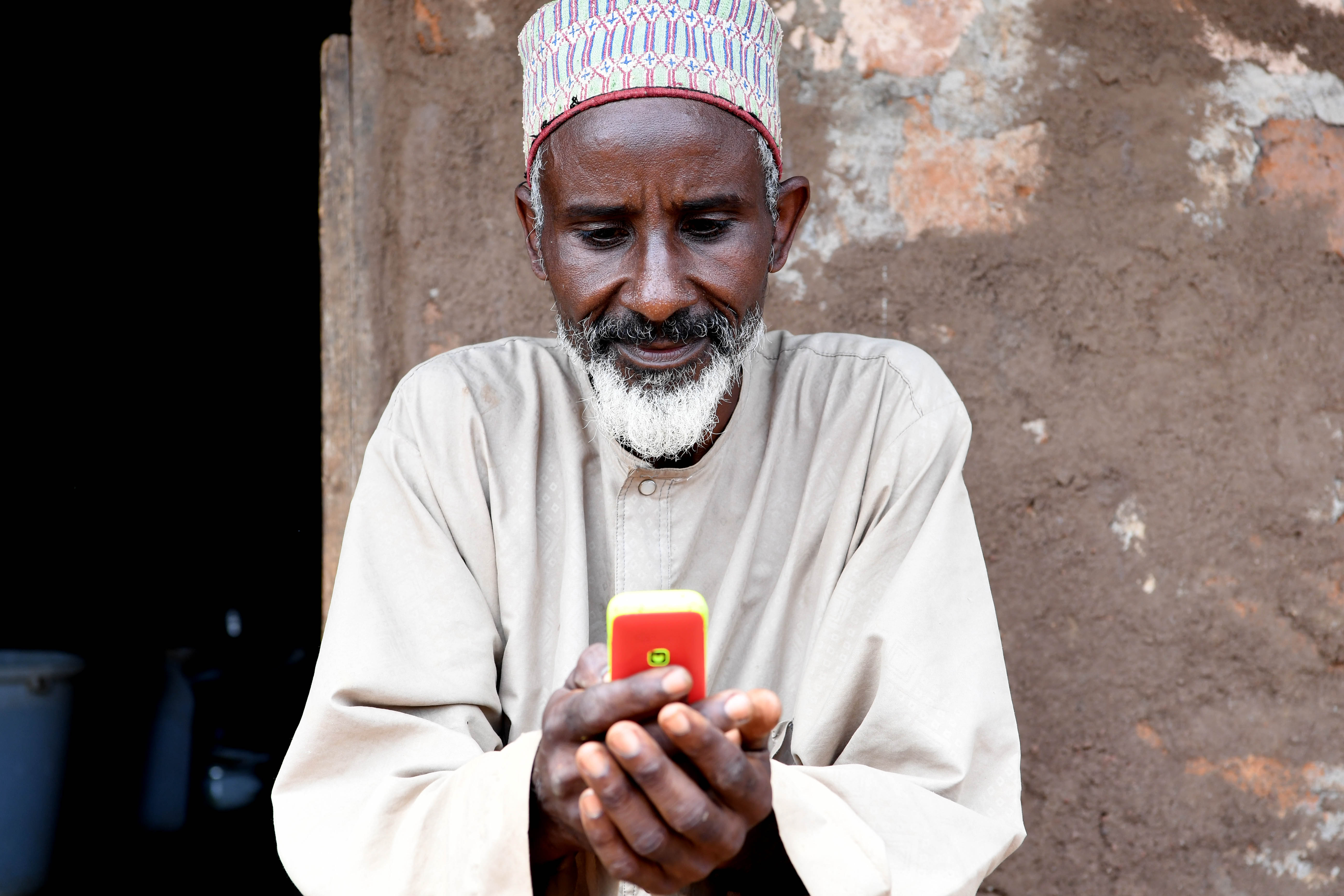In Cameroon, citizens are the first humanitarian responders
In Cameroon, citizens are the first humanitarian responders

As Cameroon hosts over 350,000 refugees, many citizens are helping refugees. In giving what little they had, they became the country’s first humanitarian responders.
As she recounts her life over the past few years, it is hard to imagine a more tragic destiny than Laura’s. Laura is a 48 year old widow from Cameroon of Central African origin. She lives in a working class neighborhood of Yaounde, the Cameroonian capital. Her life is a difficult one, punctuated by tragedies and bereavements that she evokes calmly and with a heartwarming geniality, lacking any sign of pretension.
In 2005, the void left by her husband’s death was filled by the arrival of a mother and her two daughters, who were all refugees from the Central African Republic (CAR), fleeing the violence in their home country. A widow herself, the mother had lost her husband who was a soldier, to the fighting. At this point in time, she was unaware that she lived with HIV, and she died two years later. Laura adopted both children, who were also HIV positive.
“If only we had known about their sickness earlier, we might have been able to save the youngest one” says Laura.
By the 6th of June 2016, Rose*, the youngest, is at her worst. Laura takes her to the neighboring health center: “The doctor understood right away. He asked me to take her back with me. She died at 4 in the morning in my arms, right here”, she says faintly, pointing to her bedroom. In her small living room, photographs of Rose are pined to the wall. Time and moisture have turned them yellow but left the girl’s smile intact, after she passed away at 14. Thanks to her neighbors and the parish priest, Laura was able to buy a coffin. But because there wasn’t enough money to offer her a proper burial, she was laid to rest outside the city, “where it’s free”.
Soon to turn 18, the oldest continues to receive treatment. “No one at the time was aware of her ailment”, mentions her adoptive mother. A strong and energetic girl, she attends class in a private establishment nearby, the costs of which are only just covered by Laura. “But it’s worth it”, she says: “she likes to read and write and wants to become a journalist”. For Laura, it’s simply a matter of giving her adoptive daughter a future.
“We had to help the Central African refugees, so I did”
Like Laura, many Cameroonians committed to helping refugees without asking for help or expecting anything in return. In giving what little they had, they became the country’s first humanitarian responders.

“In Church, we were told that we had to help Central African refugees, so I did”, explains Martin, keeping his eyes on the road as he drives his yellow taxi through Yaoundé’s agitated streets and traffic jams. Martin knows the city like the back of his hand after driving through it for more than 20 years, being paid meagre wages: “it isn’t much and life isn’t always easy but it allows me to feed my family”.
In 2014, at the request of his Church, Martin did not hesitate to take in Céline, a 13 year old girl orphaned by the conflict in the CAR.
Two years later, with help from UNHCR, the UN Refugee Agency, Céline was resettled to Canada, where she now lives and studies.
« We get to speak over the phone from time to time. Ideally, if I had a smartphone, we could exchange pictures. Sometimes, friends from the CAR send a picture of her, which is better than nothing”, he says smiling, before his soft voice is drowned out by the sound of traffic.
“When a stranger comes to your house and says Salaam, you do not shut the door”
One evening in 2014, in Douala, the country’s economic capital, a woman knocks on the door of a successful Cameroonian business owner named El Hadj Ahmadou Dandjouma. Ahmadou does not know her but finds out she is a distant cousin of his wife. She is accompanied by a hundred women and children, all Central African refugees, recently arrived from airport, which is not far away. He opens his door to them and hosts them for two whole years. They live in his court yard, his living room, his garden and in his kitchen. Ahmadou kills the few of the beasts he owns to feed the group. His sons help out: “All had enough to eat, three times a day for two years! It cost me a fortune but this is how a family grows in size”, he says laughing.

As the years went by, things became more organized: small houses were built on his land to host the entire group, wells were dug and toilets installed. On occasion, friends and neighbors bring bags of rice or small amounts of money, all divided equally. Doctors come and go regularly and Ahmadou covers the costs, without expecting anything in return.
In this impromptu village, relationships are formed: “sometimes, a young girl will come to me with a young man and present me as her father”, Ahmadou says light heartedly, walking amidst the small houses. A small number of people still live with him at home, mainly elderly individuals or single mothers. In Douala, 11,000 Central African refugees live in the city.
“We only got wind of what Ahmadou was doing recently”, says Henri-Daniel Ewane, a UNHCR protection officer in Douala. He explains: “In Douala, we assist more than 11,000 persons of 15 different nationalities, a great number of which are from the CAR, with the help of many partners and the Cameroonian Government. However, the needs are great and initiatives such as El Hadj Dandjouma’s are essential. Many Cameroonians are engaged in a similar manner to the extent possible, and very discretely.
The man’s actions have been put to light on social media and have received a lot of positive feedback from web users: “when people heard of my story, I received numerous calls”, recounts Ahmadou joyfully. “It is encouraging and I hope this will inspire many people to help refugees”.
Currently, Cameroon hosts over 350,000 refugees, mainly Central Africans and Nigerians. Since the beginning of the year, 5,547 refugees have been registered by UNHCR and Cameroonian authorities, in the country’s Far North region alone, where they have received international protection.
* Names have been changed for protection.








